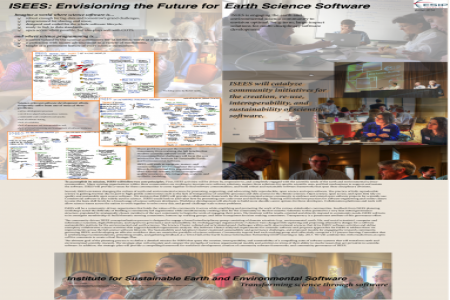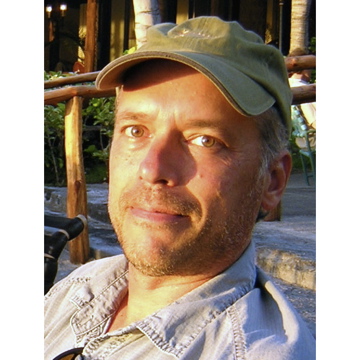
The Institute for Sustainable Earth and Environmental Software is bringing together community leaders to envision how science software can be improved to support tomorrow's science.
To accomplish its mission, ISEES will follow two core principles. First, ISEES activities will be driven by, responsive to, and completely engaged with the scientific needs of the earth and environmental science communities. Many existing organizations within these communities are working to innovate new software solutions, mature these solutions for specific scientific uses, and find mechanisms to support and sustain the software. ISEES will provide a venue for these communities to come together to find software commonalities, and build robust and sustainable software frameworks that span these disciplinary divisions.
Second, ISEES envisions changing the culture of earth and environmental science by promoting, supporting, and advocating fully reproducible, open science and open software. The practice of fully reproducible science is gaining traction due in part to high-profile controversies such as the lack of transparency of scientific processes and data sources in the climate sciences. Open science, open access, and open data rely on quality and sustainable open source software. We envision that ISEES will provide a collaboration framework for the environmental science community to embrace and extend open software projects for scientific use. Commercial software is also widely used in science. ISEES would look to add value here by promoting user-code reuse and skill sharing. Training will include best practices for software engineering and online classes to raise the basic skill levels for a broad range of science software developers. Workforce development will also look to build more durable career options for these developers. Collaboration platforms and tools will allow science teams across the nation to work together to solve every-day, and grand-challenge-scale science problems.
ISEES will be a community-driven organization that holds the values of the community it serves while amplifying and promoting the work of the various stakeholder communities. Feedback from ISEES planning workshops noted the difficulty of building a community-led organization while simultaneously creating value for the community in the first months. Solutions to this pointed to a very lean initial governance structure, populated by strategically chosen members of the user community to begin the work of engaging their peers. The Institute will be results-oriented and directly respond to community needs. ISEES will turn to its emergent membership to build thematic steering committees, bottom-up working groups, and other transparent decision-making committees. Transparency is a paramount attribute of this governance effort.


